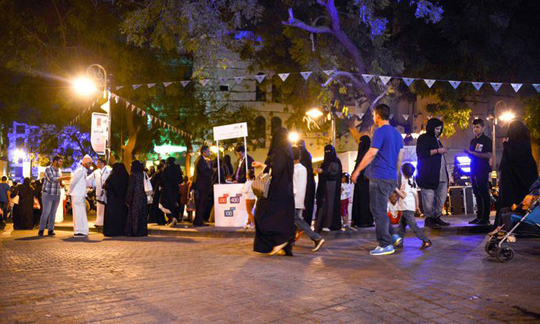Jeddah, Dec 29: The Jeddah Spring Festival, starting in January, will showcase Saudi Arabia’s customs and traditions through programs for families and visitors to the Kingdom.

The spring festival is being organized by the Association of Neighborhood Centers in Jeddah, on King’s Road in front of the Red Sea Mall for a month, and will provide jobs to youths and occupy young people and the community with recreational programs, competitions and exhibitions.
Hassan Al-Zahrani, secretary-general of the council of the Association of Neighborhood Centers in Jeddah, said Makkah Gov. Prince Khaled Al-Faisal approved the organization of the spring festival.
He thanked Prince Khaled and Prince Mishaal bin Majed, governor of Jeddah and chairman of the association in Jeddah, for their constant support for tourism, cultural and traditional programs in the city of Jeddah.
Al-Zahrani said Jeddah Spring Festival is one of the most important festivals of Jeddah that targets patrons and visitors during spring break, giving an atmosphere of fun and entertainment through programs and cultural activities. He also said that the association formed committees to prepare for the festival. He called on all sectors to participate in this festival, which is seeking to contribute to the development of the country’s economy.
He explained that the association is working to form a positive relationship between the people and their surroundings, strengthen ties between neighbors, provide them with better services and develop a sense of loyalty to the country’s efforts.
The association aims to spread proper awareness among the members of society and the communities, contribute to solving social problems, take advantage of people with different abilities to increase their effectiveness and capabilities in the community, as well as raise the spirit of citizenship and social solidarity, love and brotherhood among different segments of society.





Comments
Add new comment